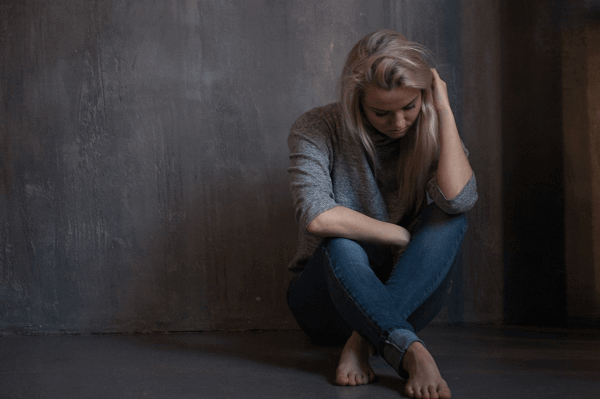It’s Okay Not To Be Okay
Mental health is never easy. It’s difficult to talk about, it’s difficult to understand, it’s difficult feeling like you’re a little bit different from everyone else. However, the reality is that battles with mental health are extremely common.

In fact, a study from YouGov found that of the 4,619 respondents, 74% felt that in the past year alone, they had felt overwhelmed or unable to cope. This shows that mental health affects many of us, and just because people put on a brave face, doesn’t mean that they don’t have their own struggles.
Now we aren’t suggesting you parade around openly discussing your mental health to literally anyone (unless you’re happy with that), but talking is important. As they say, a problem shared is a problem halved. We know it can sometimes be embarrassing. There’s a fear of being judged or causing people to act differently around you- however chances are, it just makes you more relatable, and your friends and family will feel like they understand you just that little bit more.
Stress is known to affect your mental health and can also be a trigger to a number of other issues. For example, the YouGov survey found that 51% of respondents felt depressed due to stress and a huge 61% felt anxious due to stress.
So, does this suggest that in some cases, if you can counteract the stress, you could minimise the damage to your mental health? It’s worth a try, isn’t it?
Now, as travel insurers, we love travel, we’re massive advocates of it, and in SOME cases, it can be a short-term solution to stress. We know that whilst a backpacking trip will not cure your anxiety, it may get you out of the rut you’re in and help you discover more of who you are as a person- perhaps even show you that you’re capable of more than you think you are. This being said, you know yourself and your mind better than anyone else, so if immersing yourself in a new culture or time zone whilst travelling sounds as though this could increase anxiety or be detrimental to your mental health, be aware that if you needed help whilst abroad, mental healthcare in different countries is very different to our own in the UK. Prepare well and make sure you have the right tools and strategies in place to support you should you need it.’
For many, a simple break away or once in a lifetime adventure can make all the difference. Take some time away from education, work, whatever it may be and just do something for yourself. It’s so easy to become consumed in what you feel you have to do, adhering to the unnecessary pressures of life, feeling out of control and unable to say, ‘enough is enough.’ Breaking away and going travelling can be a scary thought, especially if you’re used to a routine, but like we said travelling is not for everyone, so we’ll let you be the judge.
We recommend you speak to a doctor if you feel that your mental health is suffering regardless of whether or not you’re trying to get the okay to go travelling. Talking creates a discussion and whilst many mental health problems are not curable, they are widely treatable and can be managed in a way that lets you continue enjoying your life.
If we have created a sense of intrigue around a possible backpacking trip, we have plenty of resources to make the planning of your adventure as smooth as possible. Why not start by checking out the top backpacking destinations according to Instagram and go from there. But again, no pressure, trips like this are not the solution for everyone.
I’m going away and I’m worried about my mental health
If you’ve already booked a backpacking or gap year trip and you are beginning to worry about your mental health while you’re away, then we have a couple of tips that might help you out:
- Keep in contact: We can’t emphasise talking enough, especially if you’re away from your family, friends and all those home comforts. It’s very easy to become consumed in your trip to the point where you’ve isolated yourself. Don’t do this- even if you have nothing to say, ring your family and friends and just let them know how you are - trust us, they will worry.
- Its OK not to be ok: We all have bad days, however when your mental health is suffering, there are days when you just don’t have the motivation to even get out of bed. That’s okay. However, it’s important that you talk to people around you (be it those you’re travelling with, or people back home) so you eliminate that feeling of being alone.
- Continue those coping strategies that work for you: Whether it’s anxiety, depression- the list goes on, you know yourself better than anyone. So rather than us telling you what you should and shouldn’t do, do what you know works- what gets you through those difficult days when you’re back at home. This could be anything from ensuring you’ve taken you’re prescribed medication (make sure it’s legal in the countries you’re travelling to) to breathing techniques or even ringing your therapist.
Mental health can be hard to grasp and understand, not only for the person suffering with it, but also those around them. It’s easy for someone who doesn’t get it to say, ‘just get up’ or ‘oh you’ll be fine,’ when in reality it just isn’t that simple. It’s okay not to be okay, but talk to people and let them know what’s going on- because people care. Embrace who you are and remember your mental health does not define you- it’s just a part of what makes you, you!
If you want to talk to someone (that’s not a family member) here are some helplines:
Phone: 03444 775 774
Website: www.anxietyuk.org.uk
Phone: 0300 123 3393
Website: www.mind.org.uk
Phone: 0844 967 4848
Website: www.nopanic.org.uk


